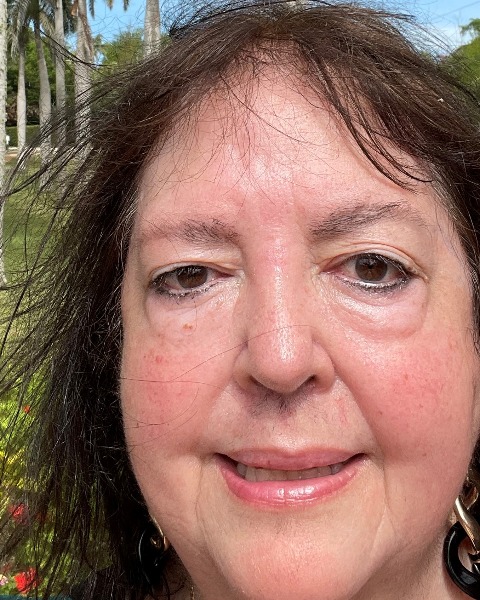Organized Oral Session
Career Track
OOS 39 - Growing an Inclusive 21st Century-Relevant Ecological Society – Celebrating the 30th Anniversary of the WAMIE Report
-
GB
Gillian Bowser
Associate professor and Biodiversity Chapter Author
Colorado State University
fort collins, United States -

Carmen Cid, PhD, ESA Certified Senior Ecologist
Professor of Ecology/Dean Emerita
Eastern CT State University
Wethersfield, Connecticut, United States
Organizer(s)
Co-Organizer(s)
Thirty years ago the Ecological Society of America, recognizing the importance of diversity of its membership to the future of ecology as a discipline, assembled a task force of ecologists already leading diversity, education and community outreach initiatives for the society, and developed the first Women and Minorities in Ecology Report (WAMIE-ReportI.pdf (esa.org)). This report set forth ESA’s integrated strategy for ecology education reform and increased representation of women and underrepresented ethnic groups in ecology. The recommendations included: changes in ESA policy and structure, enhancing education and information outreach for the general public and students of all ages, improving ecological content and pedagogical initiatives to develop a knowledgeable ecological workforce for environmental problem-solving, and program outlines for increasing recruitment and retention efforts of women and minorities in ecology career paths. Most of these recommendations have been implemented at ESA and have helped evolve further diversity and education initiatives in the society to meet the needs of the 21st century ecology workforce and discipline. In this session we provide an overview of the successes, challenges and opportunities encountered as a result of implementing the WAMIE report recommendations and discuss emerging initiatives to improve ESA as a society that focuses on meeting the needs of its members globally to improve ESA’s impact on ecological practices. The session connects the WAMIE report to the recently founded ESA Diversity Committee efforts to implement its 2022 DEIJ Action Plan, based on the ESA 2020 DEIJ Task Force recommendations. Speakers elucidate on the challenges and opportunities encountered in growing diversity of ESA through the perspective of the Black Ecologists and Traditional Ecological Knowledge sections’ leadership and Global South ESA members. The many enhancements of undergraduate education mentoring through the twenty-six years of implementation of the WAMIE report’s outline for today’s ESA SEEDS programs (SEEDS – The Strategies for Ecology Education, Diversity and Sustainability Program (esa.org), along with the development and current implementation of a multidimensional ecology education curricular framework standards (https://www.esa.org/4dee) will be discussed. The session ends with an evaluation of the advances and opportunities in engaging ecologists in the Global South towards enhancing ESA’s impact on community-effective global environmental research practices and outcomes.
Presentations:
-
10:00 AM - 10:15 AM PDTESA's 30-year Diversity and Education Improvement Journey: Successes, Ongoing Challenges and Current Opportunities for Accelerating Systemic Change
Presenting Author: Carmen R. Cid, PhD, ESA Certified Senior Ecologist – Eastern CT State University
-
10:15 AM - 10:30 AM PDTESA Ecological Literacy and Undergraduate Ecology Education Initiatives in Response to the WAMIE Report
Presenting Author: Alan R. Berkowitz, PhD – Cary Institute of Ecosystem Studies
Co-author: George Middendorf, Ph.D. – Retired
-
10:30 AM - 10:45 AM PDTAssessing Outcomes of the ESA SEEDS Program: Self-efficacy, Belonging, and Career Impacts
Presenting Author: Maria C. Ceron, Master's – University of South Florida
Co-author: Luanna B. Prevost – University of South Florida
-
10:45 AM - 11:00 AM PDTMaking ecology more diverse, inclusive, and equitable through the efforts of Black ecologists within ESA
Presenting Author: Matthew A. McCary, PhD – Rice University
Co-author: Christopher J. Schell, PhD – University of California, Berkeley
Co-author: Zakiya H. Leggett, PhD – North Carolina State University
Co-author: Karen Bailey, Department of Environmental Studies – University of Colorado- Boulder
Co-author: Sudan Alma Kariuki – Cornell University
Co-author: Briana Aniece Sealey – University of Texas at Austin
-
11:00 AM - 11:15 AM PDTDeveloping TEK Partnerships for Enhancing ESA Diversity and Ecological Research
Presenting Author: Danielle Ignace, PhD – The University of British Columbia
-
11:15 AM - 11:30 AM PDTEngaging Scientists and Practitioners in the Global South for Enhancing ESA and Ecology as a Discipline
Presenting Author: Gaurav Sunil Kandlikar – University of Missouri, Columbia
